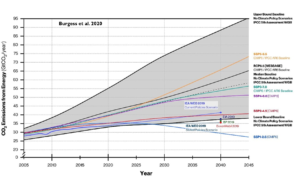And this was before the shutdowns:
The Cognitive Bias That Makes Us Panic About Coronavirus
Feeling anxious? Blame "probability neglect."
At this stage, no one can specify the magnitude of the threat from the coronavirus. But one thing is clear: A lot of people are more scared than they have any reason to be. They have an exaggerated sense of their own personal risk.
How come?
The best answer goes by an unlovely name: “probability neglect.” Suppose that a potential outcome grips your emotions, maybe because it is absolutely terrifying, maybe because it is amazingly wonderful. If so, there is an excellent chance that you will focus on it -- and pay far less attention than you should to a crucial question, which is how likely it is to occur.
One of the simplest and most vivid demonstrations comes from Christopher Hsee of the University of Chicago and Yuval Rottenstreich of the University of California at San Diego. They asked a group of people how much they would pay to avoid a 1% chance of a “short, painful, but not dangerous electric shock.” They asked another, similar group of people how much they would pay to avoid a 99% chance of getting such a shock.
There’s a massive difference between a 1% chance and a 99% chance. But people didn’t register that difference. To avoid a 1% chance of an electric shock, the median amount that people were willing to pay was $7. To avoid a 99% chance, the number was $10 – not a whole lot higher.
Hsee and Rottenstreich contend that when an outcome triggers strong negative emotions, people tend not to think a whole lot about the issue of probability...
Turn to the coronavirus in this light. The situation is very fluid, but as of now, most people in North America and Europe do not need to worry much about the risk of contracting the disease. That’s true even for people who are traveling to nations such as Italy that have seen outbreaks of the disease.
Still, the disease is new, and it can be fatal. That’s more than enough to trigger probability neglect.
There are two implications. The first is that unless the disease is contained in the near future, it will induce much more fear, and much more in the way of economic and social dislocation, than is warranted by the actual risk. Many people will take precautionary steps (canceling vacations, refusing to fly, avoiding whole nations) even if there is no adequate reason to do that. Those steps can in turn increase economic dislocations, including plummeting stock prices.
The second implication is that the best response to excessive fear is to put the issue of probability on people’s view screens, and to do so directly and explicitly.
The 'rona has a survival rate of well over 99%. So what, they say, people are dying! Is our goal now to stop deaths? If it is, are we going to ban cigarettes, alcohol, sugar, driving, stairs...you get the idea.
Do you remember the 1970s movie with John Travolta, The Boy In The Plastic Bubble? The boy with the immune deficiency had to live in a plastic bubble, not everyone else. If you are afraid of the 'rona, or have risk factors that make you more susceptible, then you should take precautions. Wear your two N95 masks, stay at home, whatever you need to do--but to insist that I do the same? That's totalitarian.

